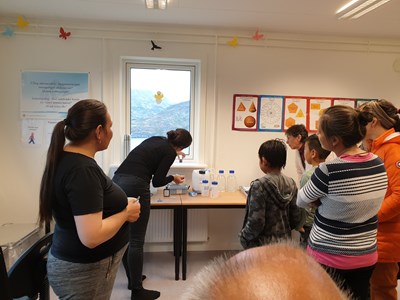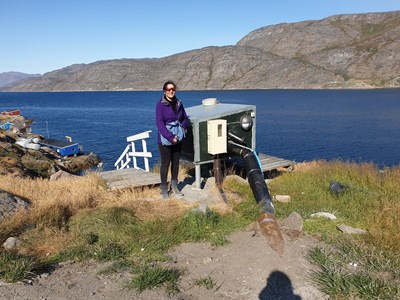The objective of this PhD-study is to reveal any health effects of existing water and sanitation systems, and make recommendations on system upgrades to implement, as well as on systems to install in future buildings. It will focus on small rural settlements, where about an estimated one quarter of households lack access to improved water, and about two thirds lack improved sanitation.
Data available on health status, water and sanitation systems at the settlement level will be merged and statistically treated; and further data will be collected both at the settlement and the household level for selected and representative settlements. This will be done to uncover any influence of personal, habitual, cultural or location specific conditions.

Health data will include types of illness, duration of hospitalizations, number of visits to clinics and days away from work or school. Water and sanitation data will include source water quality (microbial, chemical) as well as quantity of water available (litres/person/day), and influence of water storage, treatment and transport systems. Sanitation data will include type of sanitation system, frequency of collection from honey buckets, type of collection system, hygiene and monitoring of contamination of local waters used for fishing and recreational purposes.
Finally, through interviews, an in depth analysis will be made in selected settlements to explore local residents’ perception of water and sanitation systems. Ultimately, the goal is to create a knowledge foundation, which can lead to improved health and economy for the benefit of individuals as well as the Greenlandic society.
Judith already visited 6 settlements in the Upernavik District of Greenland, as well as Sarfannguit in Qeqqata. Both visits included Arctic Civil Engineering students from DTU’s campus in Sisimiut, Greenland, ensuring that knowledge on and from the project be disseminated to local people, and allowing local students to contribute to the project.

The PhD is a collaborative project with co-supervision provided by several of the network partners. Main supervisor is Pernille Erland Jensen from the Technical University of Denmark (DTU), lead of the UArctic Thematic Network on Arctic WASH.
The co-supervisors:
- Kåre Hendriksen (DTU), Member of the UArctic Thematic Network on Arctic Sustainable Resources and Social Responsibility
- Lisbeth Truelstrup Hansen (DTU), Member of the UArctic Thematic Network on Arctic WASH
- Anders Koch (Statens Serum Institut), Member of the UArctic Thematic Network on Arctic WASH
An external stay of 3-6 months is to be planned by one of the network partners in Canada or Alaska.
Photos: Pernille Erland Jensen
Photo 1: Taking a sample of the raw (untreated) lake water, as it overflows from the treatment plant´s tank and into the sea. (samples were also taken at the lake itself (raw water), and at the distribution point right outside the treatment plant (treated effluent)).
Photo 2: A meeting with Sarfannguit´s inhabitants was the occasion to discuss the water situation, hear and integrate their concerns, show them the lab, and demonstrate some of the (most fun to watch) testing methods (here: alkalinity). The lab was set in the school, where a room was generously made available to the team and all our equipment.
Photo 3: Standing by one of the public water distribution points in Sarfannguit, from which the water was sampled and tested.
